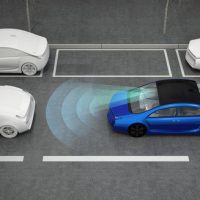Are Robotaxis Commercial Motor Vehicles?

The last few years have seen more and more companies road-test vehicles that do not require a human driver in order to operate. Called robotaxis or autonomous vehicles, they have been a hot topic for many years now, and as they become more common on state roads, many states are somewhat confused as to how to regulate them. Florida has been among the vanguard of states welcoming autonomous vehicles on its roads – but questions still remain as to how exactly these vehicles should be legally classified. Since they are intended for exclusively commercial purposes, it is reasonable to question whether they qualify as commercial motor vehicles (CMVs).
Street Legal?
Florida has had a law on its books since 2012 establishing the legality of autonomous vehicles in the state, and attempting to regulate their status. It only addresses liability for injuries in a somewhat limited way, but it is a tangible first step toward establishing a statutory structure on which to build. The law states that an “on-demand autonomous vehicle network” should operate under the same laws as a transportation network company (TNC) such as Uber or Lyft, though any provision explicitly aimed at a human driver will generally not apply.
That said, the way the law is designed means that it will currently only apply to vehicles with an operating system specifically designed to operate with no human present – which, as of this writing, does not apply to any autonomous vehicle that is street legal. There was formerly a requirement for a safety driver to remain on board, but Florida’s current governor signed a new law in 2019 which did away with that requirement. The 2019 law also specifically exempted any human in an autonomous vehicle from the prohibition on texting and driving – after all, at least in theory, the human would not be ‘driving.’
Many Commercial Motor Vehicle Definitions
Given the specification that autonomous vehicles will be governed in Florida by the rules for TNCs, it is a reasonable assumption that at least in Florida, they will not be classed as commercial motor vehicles. State law defines a CMV in several different ways under several different laws, though the most commonly used definition includes three criteria: (1) the vehicle is not owned by any government; (2) it uses ‘special fuel’ or ‘motor fuel’ on public highways; and (3) it has either at least 3 axles or weighs at least 26,001 pounds.
That said, if you have been involved in an accident with a commercial motor vehicle or an autonomous vehicle, you have the right to seek compensation for your injuries. If they reach a certain injury threshold, you may file suit instead of having to seek repayment for bills via insurance claims. Regardless, an experienced attorney can help to protect your rights.
Call A Tampa Commercial Motor Vehicle Accident Attorney
While it remains to be seen what kind of presence autonomous vehicles ultimately have on our highways, an accident caused by another person – or vehicle’s – negligence merits compensation. A Tampa commercial motor vehicle accident attorney from the Rinaldo Law Group can help you get the compensation you deserve. Call our office today for a free consultation.
Source:
flsenate.gov/Laws/Statutes/2021/316.85












